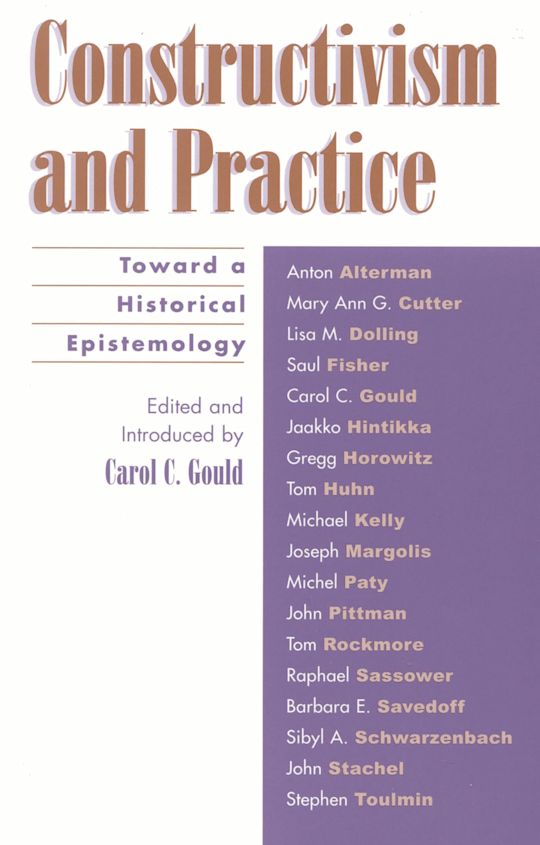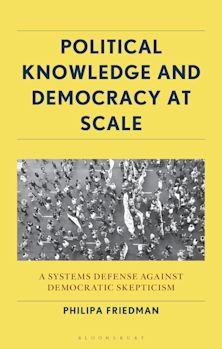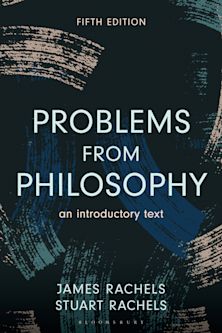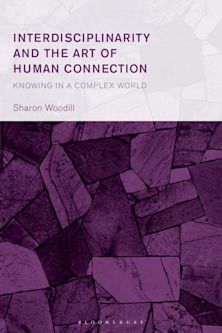- Home
- ACADEMIC
- Philosophy
- Epistemology
- Constructivism and Practice
Constructivism and Practice
Toward a Historical Epistemology
Carol C. Gould (Anthology Editor) , Joseph Margolis (Contributor) , Tom Rockmore (Contributor) , Lisa M. Dolling (Contributor) , Jaakko Hintikka (Contributor) , Anton Alterman (Contributor) , Stephen Toulmin (Contributor) , Michel Paty (Contributor) , John Stachel (Contributor) , Gregg Horowitz (Contributor) , Michael Kelly (Contributor) , Tom Huhn (Contributor) , Barbara Savedoff (Contributor) , Saul Fisher (Contributor) , Sybil Schwarzenbach (Contributor) , John Pittman (Contributor) , Raphael Sassower (Contributor) , MaryAnn Cutter (Contributor)
Constructivism and Practice
Toward a Historical Epistemology
Carol C. Gould (Anthology Editor) , Joseph Margolis (Contributor) , Tom Rockmore (Contributor) , Lisa M. Dolling (Contributor) , Jaakko Hintikka (Contributor) , Anton Alterman (Contributor) , Stephen Toulmin (Contributor) , Michel Paty (Contributor) , John Stachel (Contributor) , Gregg Horowitz (Contributor) , Michael Kelly (Contributor) , Tom Huhn (Contributor) , Barbara Savedoff (Contributor) , Saul Fisher (Contributor) , Sybil Schwarzenbach (Contributor) , John Pittman (Contributor) , Raphael Sassower (Contributor) , MaryAnn Cutter (Contributor)
You must sign in to add this item to your wishlist. Please sign in or create an account
Description
Over the past several decades, philosophers have grown to recognize the role played by frameworks and models in the construction of human knowledge. Further, they have paid increasing attention to the origins of knowing processes in social and historical contexts of human practical activities, and to social transformation of the frameworks over time.
In a series of original essays by prominent philosophers, Constructivism and Practice advances the understanding of the role of construction and model creation, reflects on the relationship of these models to social practices, and considers whether our modes of knowing themselves have a history. These questions are thoughtfully considered in the light of the "historical epistemology" first developed by Marx Wartofsky.
Table of Contents
Part 2 Knowledge and Social Practice
Chapter 3 The Construction of Knowledge
Chapter 4 Different Worlds, History, and Progress
Part 5 Language, Truth, and Modes of Representation
Chapter 6 Dialogue as Praxis: Philosophical Hermeneutics, Historical Epistemology, and Truth
Chapter 7 A Distinction Too Few or Too Many? A Vindication of the Analytic vs. Synthetic Distinction
Chapter 8 Aspects, Objects, and Representations
Chapter 9 Representation in Art and Science
Part 10 Science and the Construction of Knowledge
Chapter 11 The Idea of Quantity at the Origin of the Legitimacy of Mathematization in Physics
Chapter 12 "Critical Realism": Wartofsky and Bhaskar
Part 13 Art in Social Context
Chapter 14 Art as Reflective Praxis: On Marx Wartofsky's Historical Materialist Aesthetics
Chapter 15 A Sketch of Historical Aesthetics
Chapter 16 Reflection and Pleasure in the Aesthetics of Marx Wartofsky
Chapter 17 Photography and Vision
Chapter 18 Why Is Architecture a "Social Art"?
Part 19 Constructivism, Praxis, and Social Philosphy
Chapter 20 The Marxian Concept of Praxis
Chapter 21 Marx, the Jewish Question, and the Invention of the Proletariat
Chapter 22 Practiced Economies: From Marx to Marx
Chapter 23 The Mind's Eye and the Hand's Brain: On Wartofsky's Philosophy of Medicine
Product details
| Published | 17 Dec 2002 |
|---|---|
| Format | Ebook (Epub & Mobi) |
| Edition | 1st |
| Extent | 288 |
| ISBN | 9780742574991 |
| Imprint | Rowman & Littlefield Publishers |
| Publisher | Bloomsbury Publishing |
About the contributors
Reviews
-
This extraordinarily rich collection of essays, many of them strikingly original contributions in their own right, owes its inspiration to the work of Marx Wartofsky. Constructivism and Practice is an intellectual feast, lively and rewarding, and deserves a wide readership.
Peter Caws, George Washington University
-
Marx Wartofsky was a splendid philosopher and these essays not only remind us how splendid he was, but continue our conversation with him in a variety of insightful ways.
Alisdair MacIntyre, University of Notre Dame



































